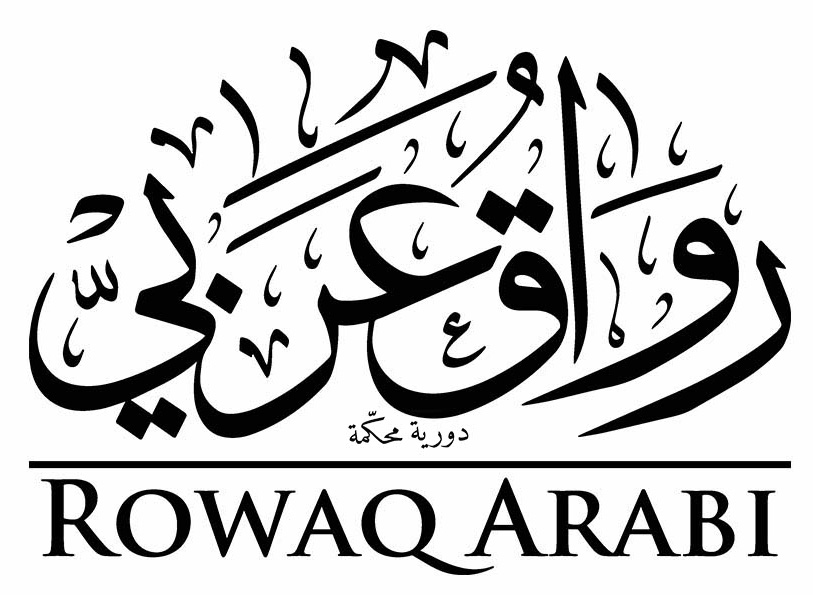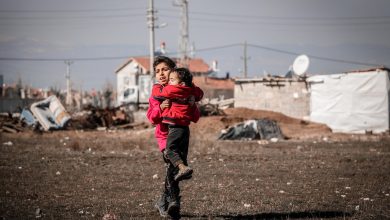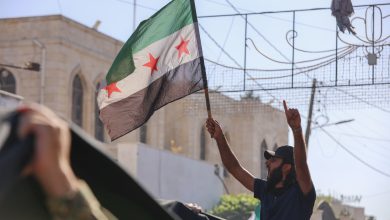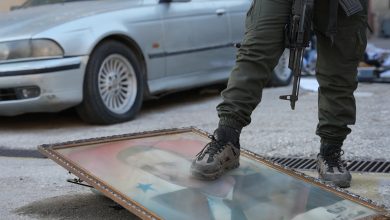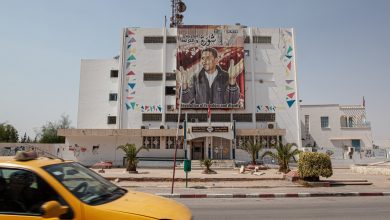Views: Critically Reassessing Arab-Western Relations in a Multipolar World
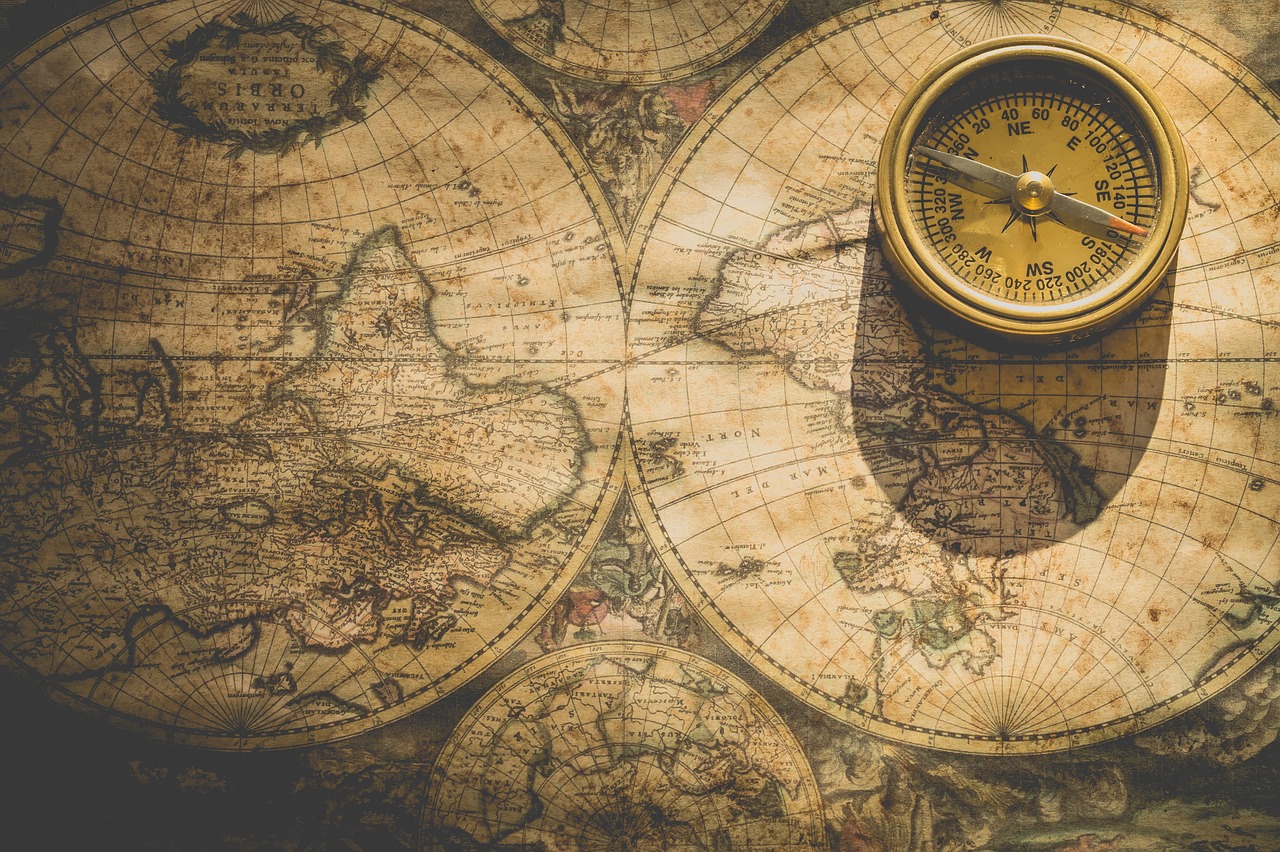
Citation: Alaoui, Hicham. 2025. “Views: Critically Reassessing Arab-Western Relations in a Multipolar World.” Rowaq Arabi 30 (1): 58-68. https://doi.org/10.53833/LTFU3476.
Arab societies are uniquely positioned in the United States and, more broadly, the West. They reside in the historical shadow of Orientalism, and its ethnocentric call for the West to either civilise the ‘backwards’ peoples of the Middle East or else, destroy them. In this framework, Arabs are seen as the interminable enemy, the existentially threatening ‘Other’ to the Western ‘Self.’ That threat perception sharply rises for the Arab diaspora within the West, whose spaces seldom give voice to their interests.
Arab peoples are also buffeted by religious and nationalist ideological currents that are propelled from the Middle East and extend to the Arab diaspora. Those views see the West as a ‘dark’ imperialist adversary that Arabs everywhere must resist and battle in order to liberate themselves. Thus, those who identify as Arab now sit at the tenuous nexus between these two forces. The pressures are immense and demoralising. Given the traumatic events happening not just in parts of the Arab world today but in Western states long regarded as ‘citadels of democracy,’ we may conclude we live in an era of despair.
From despair, however, can arise hope. As a well-known Chinese proverb holds, ‘A crisis is an opportunity riding a dangerous wind.’ Arab communities can boldly see this crisis as something entirely different—an opportunity for hope. This opportunity invokes a momentous question: How can the East-West gap be bridged?
American Policy and the Erosion of Moral Authority
Consider the long and contested history of Arab-Western relations. Crucially, the Arab world encompasses a towering landscape of rich diversity, featuring not just an Arab majority but non-Arab minorities such as the Amazigh, Kurds, Assyrians, and others. Their voices should not be forgotten, even if Western observers too often conflate them with Arabs. Much as the West birthed the tradition of Orientalism that distorted and exotified the lives of Arabs and Muslims, there was a mirror tradition of Arab literature and scholarship that long sought to interpret Western civilisation. This Arab tradition refracted the West into a mosaic of images, making it into several ‘Wests.’[1] Over the centuries, cultural exchanges, political encounters, and colonial wars engendered different perspectives. Across time and space, Arab societies looked upon the West with varying degrees of admiration, curiosity, revulsion, competitiveness, and opportunism.
This brings us to the contemporary era. The United States stands as the exemplar of the West, for better or for worse, given its enormous cultural, economic, and geopolitical power. After the Second World War, however, the US squandered a critical opportunity. As European empires withered away, the US became the paramount Western power in the Middle East. It carried little of the imperial baggage of Europe’s old powers like Great Britain and France, because it had never colonised Arab lands. This was not the case, of course, in other regions such as Latin America and southeast Asia, where the US has a more entangled and longer history.
Upon its ascent as the leading global state actor, however, the US chose to impose its hegemony upon the Arab region, in the name of containing Soviet communism and defending the ‘free world.’ In many Arab states, the American government orchestrated anti-democratic coups, supported authoritarian allies, and eviscerated Arab nationalism.[2] The US did so because it sought to secure a steady supply of Arabian oil for the West, as well as sponsor the new state of Israel. Nevertheless, because these goals were tied to the overarching context of Cold War geopolitics, American hegemony did not penetrate the daily lives of most Arab publics in the way that European colonialism had.
Nevertheless, it was not until the post-Cold War era that the US fundamentally squandered its advantage. In the 1990s the US could still claim, with some credibility, that it could be a benevolent hegemon. After all, the US won the Cold War and represented a shining city on a hill—a resplendent democracy capable of spreading liberal ideals. As the political scientist Francis Fukuyama wrote at the time, perhaps the world had reached the ‘end of history.’[3]
A succession of crises, however, shattered this utopian outlook. The global war on terror after 9/11 did not inaugurate a legal campaign against radical Islamist terrorism, but rather a political campaign against Islamic revivalism itself. It also saw the US strengthen its ties to autocratic regimes across the region. These regimes cooperated with the American government in expanding illegal rendition, wherein many individuals suffered torture in extrajudicial black sites.[4] Such ties entrenched the most retrograde political elements across the Arab world, such as security agencies that further aggrandised their power in the name of battling terrorism, with America’s blessing.
The 2003 Iraq War brought universal revile. Embodying the neoconservative ideology of the Bush administration, the war poisoned America’s image for many Arab publics, who saw the invasion as an illegal and self-serving operation that ultimately inflicted a horrific occupation upon the Iraqi people.
Palestine and the Crisis of Western Liberalism
America’s role in the Israeli-Palestinian crisis has likewise sullied the image of the West. At almost every decision-making point since the 1993 and 1995 Oslo Accords, the United States and most of its European allies have disappointed many Palestinians by not fully pressing for Palestinian sovereign statehood. It is crucial to note that, as political scientists like Mark Tessler have found in exhaustive survey research, anti-Israeli attitudes within Arab societies today are driven primarily by opposition to the Israeli government’s actions towards Palestine, not anti-Jewish sentiments or deeper religious antipathy.[5] It is critical to also remember that prior to the Oslo Accords, the main Arab position on Palestine, sponsored by Saudi Arabia, was one that followed the position of the United Nations after the 1967 Arab-Israeli War; that template was about ‘land for peace.’ If the Israeli government ended its occupation of the Palestinian territories, then there could be full diplomatic recognition of Israel. By the 1980s, well before the Oslo Accords, mainstream Palestinian actors such as the PLO as well as most Arab states had unequivocally renounced political violence.
All this has inflicted significant damage. Palestine occupies a special place in the Arab imagination. Supporting the struggle for a sovereign Palestinian state has long been a unifying principle among Arab societies. The sacred importance of land and belonging, the religious significance of Jerusalem, and resistance against colonialism all feed into this. The 1948 war, or ‘Nakba’ as many Arabs refer to it, has deep historical significance as it marks the first mass displacement of Palestinians. For all these and other reasons, Palestine carries profound emotional and cultural currency that cannot be erased.
Prior to the current Gaza War, the US was losing support among Arab publics due to its robust sponsorship of Israel. Israeli actions created what scholars described as a ‘one-state reality’ that deprived Palestinians of dignity and human rights.[6] The 2020 Abraham Accords—which entailed normalisation agreements between Israel and the United Arab Emirates and Bahrain, brokered by President Donald Trump and his special advisor and son-in-law, Jared Kushner—further missed the mark. It created putative peace between Israel and Arab governments, which had not fought a conflict with one another since 1973, while further marginalising Palestine. It also exploited religious identity by promising interfaith dialogue between the ‘sons of Abraham.’ In reality, many Muslims and Arabs do not have a problem with Jews and Judaism, but rather with the Israeli government’s policies.
If Israeli colonisation of the West Bank killed the two-state solution, then the current Gaza War revealed its irrevocable obsolescence. The conflict has produced enormous casualties and destruction. At the same time, the indiscriminate Hamas attacks of October 2023, which killed nearly 1,200 people within Israel, must also be seen as a transgression and morally reprehensible. The killing of more than 50,000 Palestinians by the Israeli military since then, and many prior to October 2023, must also be seen as also illegal and reprehensible. An appropriate question must be asked: if ‘justice’ has been served for Hamas’s leaders on behalf of those killed in Israel, then who will administer justice for the many more Palestinians killed during the war?
In Gaza, most homes have been destroyed, as have most schools, hospitals, universities, and cultural and religious institutions. The United Nations estimates the cost of reconstruction will exceed $53 billion.[7] President Trump’s plan to take control over Gaza and displace its people has also appalled the Arab world. By indiscriminately supporting Israel throughout this traumatic conflict, the US and its European allies have estranged Arab and Arab diaspora communities alike. Their financial and military support for Israel persists despite the mounting record of its war crimes, including ethnic cleansing and forced starvation, all culminating in humanitarian tragedy.
The Gaza War has amplified the global transformation of the Palestinian issue. What has previously been more confined to a symbol of Arab unity has become a stain upon the universality of human rights. Multilateral institutions like the International Criminal Court and the International Court of Justice have deliberated over serious charges involving the Israeli state. The ICC has issued arrest warrants for both the Israeli and Hamas leaderships. Thee ICJ’s January 2024 ruling held that given the destructive scope of its operations in Gaza, Israel was required to ‘take all measures within its power to prevent and punish the direct and public incitement to commit genocide.’[8] These developments have complicated relations between Western societies and both Arab diaspora and regional publics. Nevertheless, the globalisation of Palestine has meant that the concerns voiced by Arab governments and publics are now global ones. The cause and suffering of Palestinians ignites international outcry because it fundamentally contradicts the most basic rights to dignity and well-being.
Survey data shows that the United States has borne the moral brunt of alienating the Arab world. The latest 2024 public polls from the Arab Barometer indicate that sixty-five per cent of respondents in eight Arab countries (Iraq, Jordan, Kuwait, Lebanon, Mauritania, Morocco, Palestine, Tunisia) have an unfavourable view of the US.[9] Conversely, now over sixty-three per cent of Arab respondents have a favourable view of China. In effect, America’s loss is China’s gain.[10] This could suggest that many in the Arab world now see not the US or Europe, but rather authoritarian yet prosperous China as the model of successful political and economic development to emulate. Thus, the cycle of history is illustrated: Seventy years ago, the US had no colonial baggage as it entered the Arab world; now, for many in Arab societies, the US represents the embodiment of Western arrogance and domineering.
Yet, all is not lost. There is one critical finding in the Arab Barometer survey data. Despite having disaffected many Arab audiences through the global war on terror, the Iraq War, and the Palestine conflict, the United States still has a reservoir of goodwill that is fragile but still sizable. The latest wave of the Arab Barometer also tellingly reports that over forty-six per cent of respondents in Arab countries still want stronger ties with the US.[11]This should not be surprising. Despite the US government’s geopolitical mistakes and destructive policies, the essence of American culture has always beckoned to the outside world. That essence is about people, not government. Though often contested, the symbolic idea of the ‘American dream’ does not purport to create a monolithic society, but rather provide mobility, education, and opportunity to anyone.[12] At its best, it nurtures an inclusive spirit that precedes even the founding of the United States itself. A fascinating comparison can be made with Europe here. Moroccans or Algerians in France can speak French and attend French universities, but many will never be seen as truly French by denizens of their new society. The same can be said of Turks in Germany.
Intellectual Exile
As a Moroccan scholar who has spent most of his career in the West, I recognise that my positionality—meaning how one’s background shapes the questions and ideas raised in public discourse[13]—is inextricable from these arguments. The perspective here regarding how to bridge the divide between the Arab and Western worlds reflects my personal experiences and cultural background as much as it does historical and political analyses. America’s pluralistic promise is partly what brought me there. Many years ago, my decision to leave Morocco for the United States to undertake my undergraduate education was seen by many fellow Moroccans as a startling, even unorthodox, decision. However, this was not only the right decision, but one of the best decisions of my life. Not only did I find university life in the US to be intellectually rigorous, but it provided space in which to express ideas, flourish through the liberal arts, and develop a critical mind. I could not have found the same in Europe. This is why my wife and I raised our daughters in the US, and why they also proudly attended American universities for their undergraduate education. My family today are proud American citizens. I would have been equally proud to gain American citizenship, but this would have required me to renounce allegiance to a ‘foreign prince’—in this case, my sovereign. I could not do this, for it would have also forced me to forsake the oath I had taken while surrendering the deep attachment I have to my family. In this vein, should I be deported tomorrow on basis of my philosophical ideas and political convictions, I would not change this stance. Even as the political climate in the US continues to deteriorate, this will not be excessively onerous to me. The worst of times will pass. They always do.
When I was forced to leave Morocco in 2002, my American friends and community welcomed me back. In Morocco, I had suffered relentless political harassment sponsored by the state including baseless accusations of conspiracy, vicious public villainisation, efforts to financially strangulate me, ostracisation within my own society, and pressures meant to destroy my family unit. In this context, the US provided a sanctuary where I could develop to my potential and raise my family in safety. I realise that I was among the most fortunate in being able to elude those pressures and thrive abroad.
It is against this backdrop that I regard the present moment as urgent and pivotal. The Arab diaspora has a crucial opportunity to engage America, and the West more broadly, in closing the gap between East and West.
Diaspora Agency and the Limits of Mobilisation
The first several months of 2025 have seen unprecedented democratic backsliding in the United States due to second Trump administration’s abuses of executive power and the precipitous decline of civil liberties, as objectively observed by political scientists such Steven Levitsky and Lucan Way.[14] This political disruptiveness has thus far not helped the economy. Whether it likewise keeps the opposition off balance, thwarting its reorganisation, is also something we shall soon discover. However, this much is known: ultimately, democratic backsliding always brings severe costs to everyone.
The American government has targeted individuals for exercising their free speech related to Palestine. Universities, including Ivy League institutions like Columbia and Harvard, have begun caving to political pressures; Columbia has essentially criminalised the principle of protest. A political onslaught has targeted many immigrants, including those with permanent legal residence in the US. Students and scholars can no longer believe that universities will insulate them from these political pressures. One can gauge, from abundant data, the reaction of the large and growing Arab diaspora in the US to recent events. According to the Arab-American Institute, the United States has 3.7 million Arab residents, of whom eighty-five per cent are citizens.[15] In the November 2024 elections, much of this diaspora deserted the Democratic Party, which they had long supported, due to Biden’s policies in Gaza. In Arab-dominant cities like Dearborn, Michigan, more Arab voters supported Trump than Harris.[16] This shows how during episodes of crisis, the Arab diaspora can make their voices heard. But what about political engagement during longer periods of relative normalcy? To take one example, Turks in Germany are still shadowed by questions of national identity. Yet they have still created political associations, economic chambers, and networks of social solidarity that have allowed them to succeed.[17] The same can be said of some other Middle East diaspora populations in the US, such as Iranians in California.
Nevertheless, political mobilisation among Arab-Americans is relatively weak. One reason is that the Arab diaspora is geographically dispersed in America, outside of Michigan and the major coastal cities. It is also divided, as many Arabs identify themselves as not simply part of the pan-ethnic Arab community, but rather by their national origins. Even within national diaspora communities, such as among Egyptian-Americans and among Lebanese-Americans, religious and sectarian cleavages often reproduce themselves. Economic, class, and gender issues also undermine their potential unity. This is the same problem faced by the Asian-American community in the United States. They constitute an increasingly influential social force, but lack internal cohesion and solidarity. Chinese-American, Indian-American, and Korean-American communities each tend to pursue their own interests when engaging politics, rather than seeing themselves as part of a much broader Asian-American rainbow coalition.[18]
Yet, this diversity also creates a potential opening. Many in the Arab world, as well as Arab-Americans in the United States, can still mobilise, not least because many remain distanced from Arab governments in the Middle East themselves, which across much of the Middle East, have silenced free discourse. Hence in many Western countries, Arab diaspora communities have a unique opportunity to raise awareness in ways that are legible not only to communities in the Middle East but also to communities in the West. The scholarly journal Rowaq Arabi, which has become a leading voice of independent political analysis about Egypt and the Arab world, is but one example of this unique opportunity. Supported by generous donors and civil society groups, the journal’s basis in Brussels is more than symbolic; it reflects the restricted state of academic freedom in many Arab states.
As more Arab undertakings like these emerge in the West, an important reality surfaces. Arabs in the West cannot be incumbered by the mentality of victimisation—of being estranged not just from Arab governments, but also from the Western ‘gaze.’ Proactive advocacy and relentless engagement do not occur overnight. But they leverage a vital advantage: critical knowledge borne out of historical experience, informed by our political circumstance, and oriented towards building a better future. One historical moment demonstrates this point. Full-fledged American support for Israel did not crystallise until well after the 1960s. Indeed, in 1956, the United States and Soviet Union forced Israel alongside Great Britain and France to withdraw from the Suez Canal zone during their war with Egypt. Afterwards, the US did everything to prevent Israel from building its Dimona nuclear reactor.[19] It was Israel’s sudden and swift victory in 1967 that shifted American attitudes towards a position of uncritical sponsorship. The 1979 Islamic Revolution in Iran cemented this pro-Israeli approach as a pillar of US foreign policy.
It will take agile and critical thinking to re-imagine a framework that brings Arab and Western peoples closer together, and moves beyond the weight of the past. Indeed, even the past becomes more complicated once subjected to scrutiny. The pathology of endless conspiracy theories, and the fatalism it creates, does not facilitate productive thinking.
The Regional Landscape
Bridging the East-West gap through engagement rather than retreat takes on such urgency for further reasons pertaining to the regional situation in the Arab world itself, which can only improve through a shared, transnational effort. It is easy to retreat into despair; there are not many reasons for optimism today given the persistent structural crises across many Arab countries, including high unemployment, antiquated educational systems, rigid gender inequality, ideological polarisation, and authoritarian politics. Some Arab states have deeply splintered into militias and political factions, as witnessed in Libya, Sudan, and Yemen, where international interventions have only inflamed sectarian rifts and foreclosed pathways to national stability. Iraq’s struggling democracy remains enveloped in corruption and poor governance while Lebanese politics remains beholden to a toxic mix of confessional feuds, political elitism, and regional meddling.
Newer democratic experiments have also stumbled. Tunisia was the lone country to emerge from the Arab Spring with a functional electoral democracy, but it has suffered swift backsliding under the populist rule of President Kais Saied. Likewise, although the 2019 Algerian uprising resulted in some political change and expectations for democratisation, the military and its subservient elites refused to entertain any regime transition, and stifled popular demands for democracy. Other countries like Morocco, Egypt, and Jordan struggle to maintain national stability through autocratic rule as their regimes face enormous economic and political challenges. Their societies hunger for opportunity and freedom, which these governments cannot satisfy given the inherent shortcomings of the status quo. Meanwhile, despite the downfall of Bashar al-Assad’s regime in Syria last December, burning issues confront today’s transition in Syria. Among them are whether the current government will enshrine pluralism as a principle of the new Syria, and how to provide basic security and rule-of-law.
The overall regional balance of power has shifted as well. The Gaza War has seen the rapid decline of Iran’s ‘axis of resistance;’[20] Hezbollah in Lebanon and the Houthis of Yemen are now on the defensive while as of December 2024 the Assad regime in Syria is no more, marking the end of the Arab world’s last ‘president for life.’ Israel has become more militaristic: since the October 2023 Hamas attacks inside Israel, the Israeli military has invaded three Arab states—Palestine, Lebanon, and Syria. More broadly, the backsliding of American democracy has further eroded its normative power. Two decades ago, the United States claimed its invasion of Iraq could bring freedom to the Arab world, predicated upon the fact that the US was a robust liberal democracy. When American democracy stumbles, however, there is no moral superiority to leverage. Neither can the US any longer claim to promote democracy, given the second Trump administration’s dismantling of USAID and other democracy assistance programmes in its foreign policy. The administration has ended foreign aid to countries that desperately need it the most; these countries must now seek aid from other sources. This has deprived the American government of the soft power that had allowed it to long hold an advantage in international affairs.
Under President Trump, the US is also reconfiguring its relationships with Arab states. The administration’s proposed plan to take ownership over the Gaza Strip has also inspired right-wing Zionist voices within the Israeli government, who now see not just Gaza but all the West Bank as ripe for annexation. Arab states, such as Saudi Arabia, have interpreted this proposal as an attempt to eliminate the prospects of sovereign Palestinian statehood once and for all, while creating a new wave of Palestinian refugees.[21]
Finally, the replacement of a rules-based order with a transactional logic should compel even the authoritarian oil-rentier Arab states that led the counterrevolution against the Arab Spring to ponder their future. We need only look to the President Trump’s early foreign policy moves in his second term, such as reducing support for Ukraine in its war against Russia and declaring a desire to annex the Danish territory of Greenland, for evidence of this. It would be unwise to think that tomorrow, the eastern Arabian oil fields or the natural gas-rich Algerian desert will be safe from similar policy. In fact, as the Europe Union and China resist the American government’s aggressive trade policies, they may see these areas as soft targets over which they can impose their own interests.
Towards a New Framework for Engagement
Given the challenges facing the region, the path forward demands innovative solutions. Central to this is a shared desire between Western publics and Arab societies: peace, prosperity, and dignity. These fundamental aspirations transcend cultural boundaries, as evidenced by widespread calls for responsive governance, political voice, and economic opportunity. These are not exclusive to any one culture but represent universal concerns. The transnational solidarities that have arisen over the past decade embody this. For instance, the globalisation of the Palestine question means that this issue not only weighs heavily upon Arab publics, but it also infuses new grassroots movements and advocacy groups in the West.[22] These connections are reciprocal. The Black Lives Matter movement in the United States, which advocated for social justice, inspired solidarity marches and mobilisation across many Arab countries. Similarly, the 2011-12 Arab Spring ignited the Occupy Movement, mobilising young people in North America and Europe in a similar quest for social change. Such collective action represents a pivotal moment in which Arab voices were amplified on the global stage, underscoring the role of solidarity in reshaping the global political landscape.
The eruption of popular uprisings in 2011 was unforeseen by many scholars who had long argued that authoritarian regimes in the Arab world were inherently stable. For years, these scholars characterised ordinary people in Arab societies as too passive to challenge the status quo; those who contended otherwise were often dismissed as naive or overly optimistic.[23] The Arab Spring, however, provided a stark reminder that, even in the most oppressive circumstances, hope can emerge unexpectedly. This collective will for change was articulated powerfully by protesters who, when asked why they chose to defy repression, responded resoundingly: ‘Inkasara hajiz al-khawf [The wall of fear has been shattered]’.[24] Contested authoritarian regimes in the region could hold back fragmented opposition forces, but not the unitary weight of their own publics mobilising for democracy. In a similar vein, collective action offers a path forward for participation in political processes. Not everyone need be protesters and activists. But intellectual advancement is decisive as knowledge, by itself, is a powerful emancipatory tool; what Arab students, scholars, and thinkers in the West can accomplish through their own intellectual enrichment still fundamentally matters. There will always be a demand for more knowledge about the Middle East among Western audiences due to Western governments’ interventions and involvement in regional crises, and the Arab diaspora is well-placed to provide this knowledge. Members of the diaspora have the opportunity to not only provide knowledge but also redefine it in their own terms, whether in political institutions and public discourse, or through scholarship.
After a lifetime of activism, I have settled on the scholarly pathway. Now, the youth represent political actors with the most potential. This endeavour is not without its challenges. Like any political struggle, it demands patience, commitment, and moderation. Respect for others, especially those who evoke differing viewpoints, is essential in navigating this complex landscape. In this discourse, certain topics, such as the Palestinian question, have become intertwined with the larger ‘culture war’ happening in many Western societies, in which those advocating for Palestinian rights are associated with left-wing or ‘woke’ causes and those defending Israel associated with more conservative, right-wing parties and movements.[25] Nevertheless, other issues like democracy, human rights, development, and corruption remain open for discussion.
Much as these issues require honest dialogue and critical examination, as do regional realities demand closer introspection, the era of American unipolarity, once termed Pax Americana, is fading. The international system is now multipolar, which brings new challenges and opportunities. Given the ongoing crises in the Middle East, it is not inconceivable that another wave of popular uprisings may emerge in the near future. The demand for human rights and freedom will persist, and the Arab diaspora in the West must be ready with alternative frameworks when future crises arise. The United States and its allies, and many Arab countries, have demonstrated inability and unwillingness to respond to popular demands. At this critical juncture, it is incumbent upon communities in the Arab region and diaspora to propose new paradigms that foster greater understanding and cooperation while safeguarding the rights and dignity of all individuals. This responsibility demands a thoughtful, informed approach that transcends mere political expediency. Should these voices fail to engage meaningfully with the pressing issues of the moment, other actors—who do not share a commitment to inclusive politics and equitable solutions—may take the lead; an outcome that would have deeply regrettable consequences.
Acknowledgements
This text was originally written as a keynote speech delivered at the Yale University Arab Conference on 11 April 2025 and was later developed into this views article.
[2] Fawaz A. Gerges, What Really Went Wrong: The West and the Failure of Democracy in the Middle East (New Haven: Yale University Press, 2024), https://doi.org/10.1093/ia/iiae252.
[3] Francis Fukuyama, The End of History and the Last Man (New York: Free Press, 1992).
[4] Open Society Justice Initiative, Globalizing Torture: CIA Secret Detention and Extraordinary Rendition (New York: Open Society Foundation, 2013), accessed 15 March 2025, https://www.justiceinitiative.org/publications/globalizing-torture-cia-secret-detention-and-extraordinary-rendition.
[5] Mark Tessler, “The Nature and Determinants of Arab Attitudes Towards Israel,” in Contemporary Antisemitism: Canada and the World, eds. Derek J. Penslar, Michael R. Marrus, and Janice Gross Stein (Toronto: University of Toronto Press, 2004), 96-120.
[6] Michael Barnett, Nathan J. Brown, Marc Lynch, and Shibley Telhami, “Israel’s One-State Reality,” Foreign Affairs 102, no. 3 (2023): 120-35, accessed 15 March 2025, https://www.foreignaffairs.com/middle-east/israel-palestine-one-state-solution.
[7] “At Least $53 Billion Needed to Rebuild Gaza, UN Estimates,” France24, 11 February 2025, accessed 16 March 2025, https://www.france24.com/en/live-news/20250211-at-least-53-billion-needed-to-rebuild-gaza-un-estimates.
[8] International Court of Justice, Order of 26 January 2024, Regarding Case 192 – Application of the Convention on the Prevention and Punishment of the Crime of Genocide in the Gaza Strip (South Africa v. Israel), 26 January 2024, accessed 20 February 2025, https://www.icj-cij.org/node/203447.
[9] Arab Barometer, Arab Barometer Survey Wave VIII (2024), accessed 2 March 2025, https://www.arabbarometer.org/.
[10] Ibid.
[11] Ibid.
[12] Jim Cullen, The American Dream: A Short History of an Idea that Shaped a Nation (Oxford: Oxford University Press, 2004), 9th Ed.
[13] For more on positionality in Middle East studies, see Lorraine Charles, Ilan Pappé, and Monica Ronchi, eds., Researching the Middle East: Cultural, Conceptual, Theoretical and Practical Issues (Edinburgh: Edinburgh University Press, 2021).
[14] Steven Levitsky and Lucan Way, “The Path to American Authoritarianism: What Comes After Democratic Breakdown,” Foreign Affairs, 11 February 2025, accessed 5 March 2025, https://www.foreignaffairs.com/united-states/path-american-authoritarianism-trump.
[15] Arab American Institute, National Arab American Demographics, January 2025, accessed 16 March 2025, https://www.aaiusa.org/demographics.
[16] Abdelhalim Abdelrahman, “Why Michigan Arab Americas Backed Trump over Harris,” Foreign Policy, 13 November 2024, accessed 15 March 2025, https://foreignpolicy.com/2024/11/13/michigan-dearborn-trump-harris-arab-gaza-israel-vote/.
[17] See further Nermin Abadan-Unat, Turks in Europe: From Guest Worker to Transnational Citizen (New York: Berghahn Books, 2011), https://doi.org/10.1177/0268580912452370f.
[18] Janelle Wong and Karthick Ramakrishnan, “Asian Americans and the Politics of the Twenty-First Century,” Annual Review of Political Science 26 (2023): 305-323, https://doi.org/10.1146/annurev-polisci-070621-032538.
[19] Matteo Gerlini, “Waiting for Dimona: The United States and Israel’s Development of Nuclear Capability,” Cold War History 10, no. 2 (2010): 143-161, https://doi.org/10.1080/14682740903162300.
[20] Renad Mansour, Hayder Al-Shakeri, and Haid Haid, “The Shape-Shifting ‘Axis of Resistance,” Research Paper of Chatham House, 6 March 2025, https://www.chathamhouse.org/2025/03/shape-shifting-axis-resistance, accessed 6 March 2025.
[21] Arab Center, Normalization and Displacement: Saudi Arabia and Trump’s Gaza Proposal, (Washington DC, 20 February 2025), accessed 5 March 2025, https://arabcenterdc.org/resource/normalization-and-displacement-saudi-arabia-and-trumps-gaza-proposal/.
[22] Sune Haugbolle and Pelle Valentin Olsen, “Emergence of Palestine as a Global Cause,” Middle East Critique 32, no. 1 (2023): 129-148, https://doi.org/10.1080/19436149.2023.2168379.
[23] I was one of those voices. See, for instance, Hicham Alaoui, “ Les régimes arabes modernisent… l’autoritarisme,” Le Monde Diplomatique, (April 2008), https://www.monde-diplomatique.fr/2008/04/EL_ALAOUI/15781.
[24] Wendy Pearlman, ‘Emotions and the Microfoundations of the Arab Uprisings,’ Perspectives on Politics 11, no. 2 (2013): 387-409, https://doi.org/10.1017/S1537592713001072.
[25] Umut Özkırımlı, “Gaza and the End of the Culture War as We Know It,” New Lines Magazine, 12 June 2024, accessed 5 March 2025, https://newlinesmag.com/argument/gaza-and-the-end-of-the-culture-war-as-we-know-it/.
Read this post in: العربية
